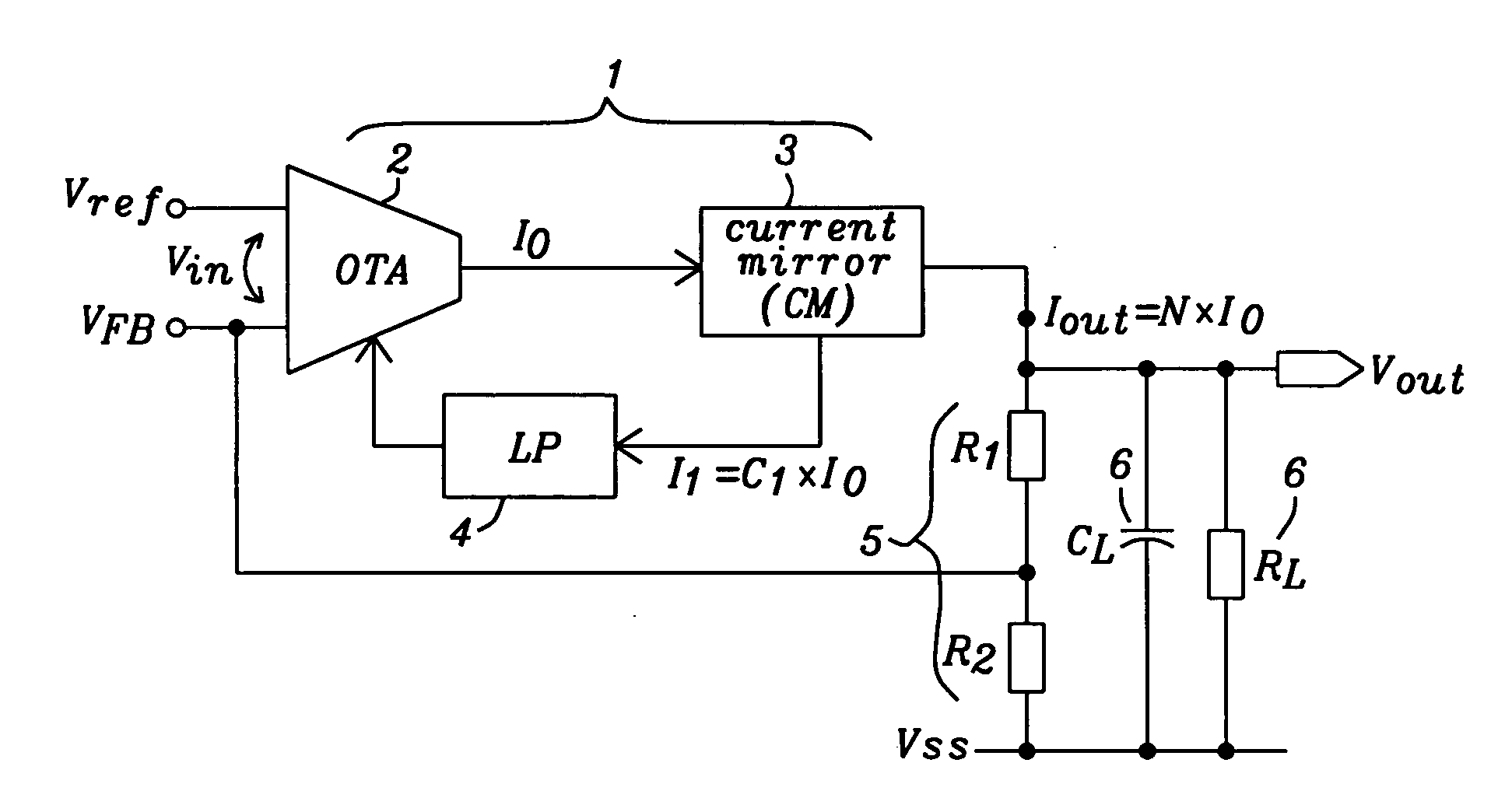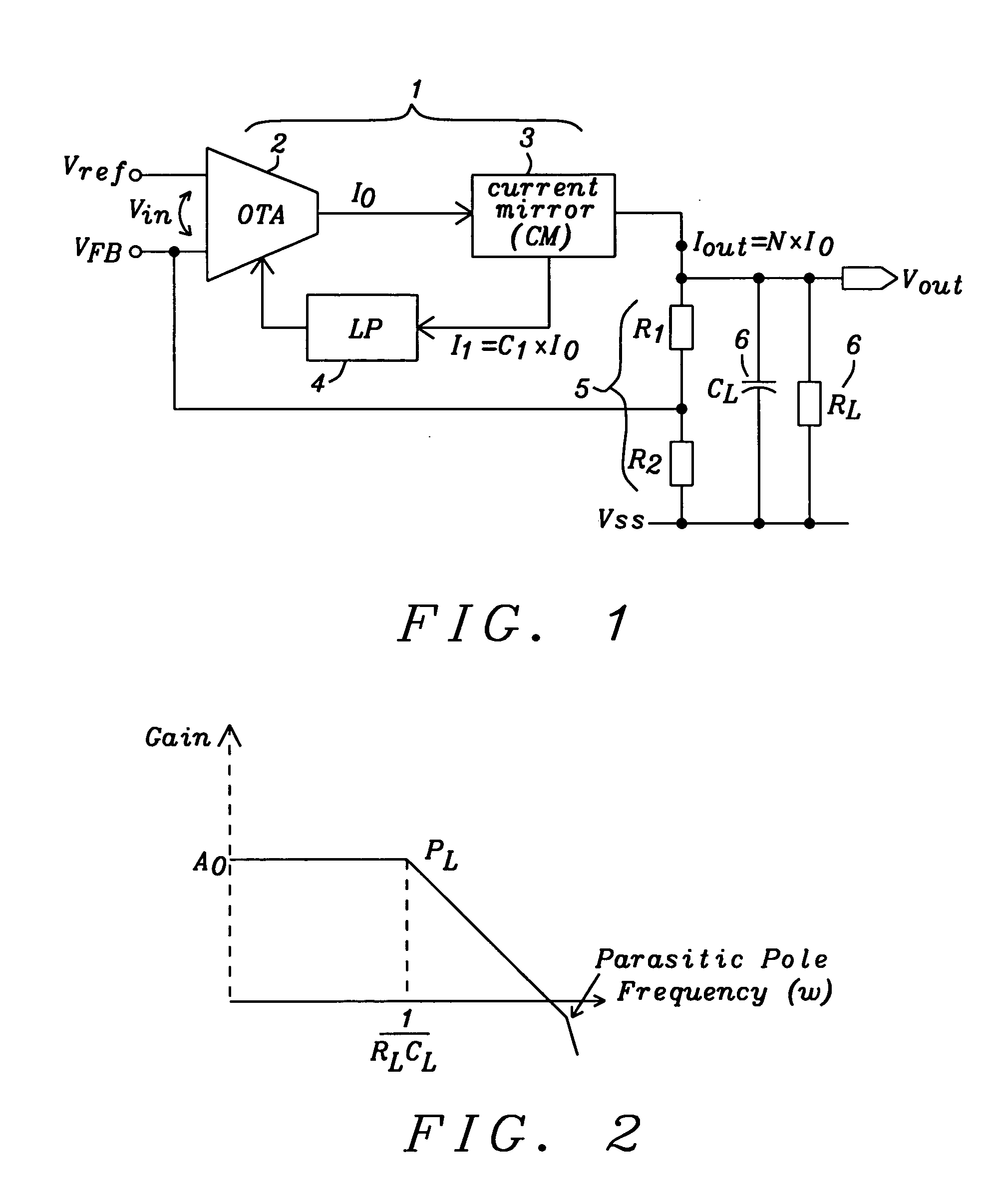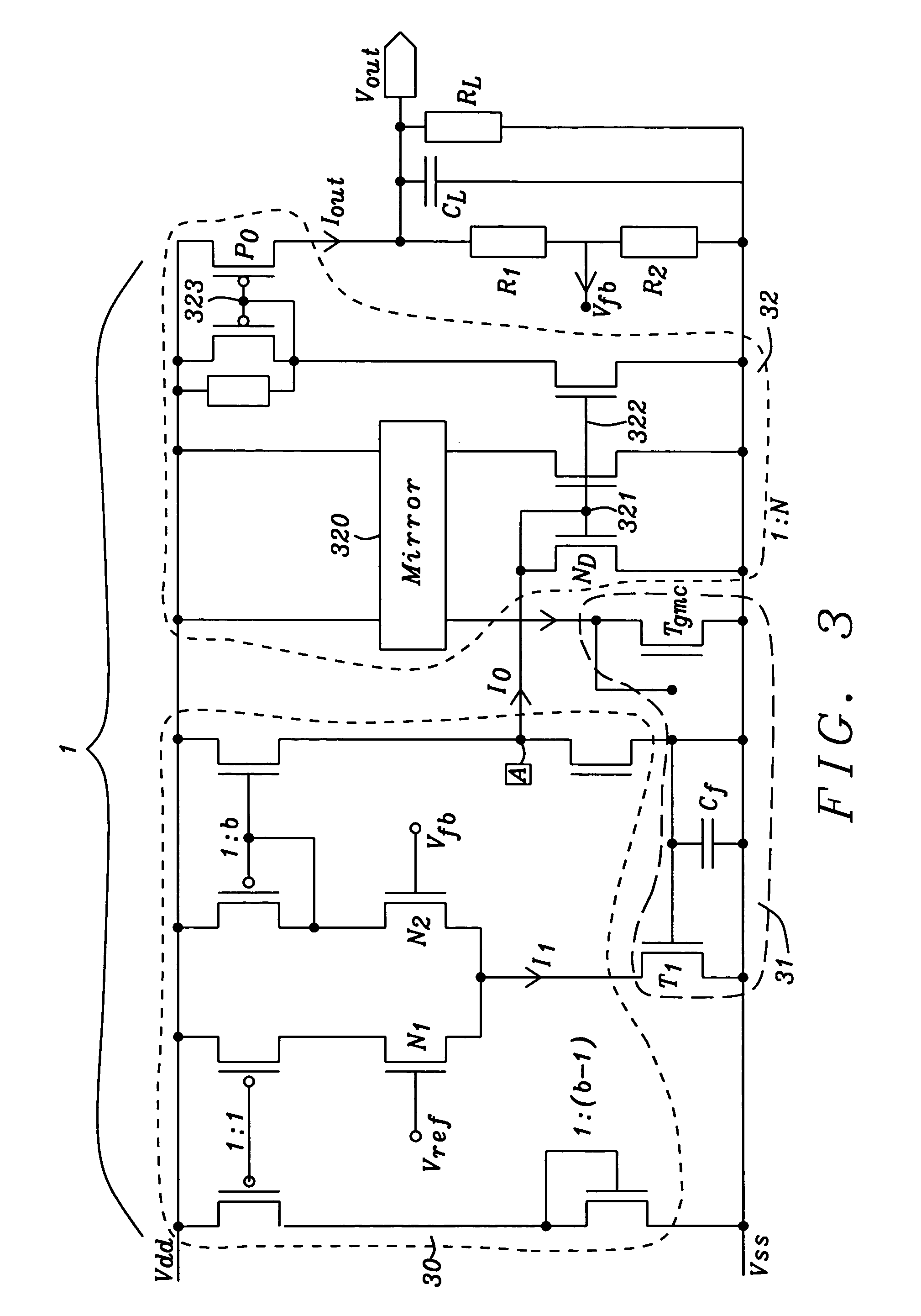Adaptive biasing concept for current mode voltage regulators
a voltage regulator and current mode technology, applied in the direction of electrical variable regulation, process and machine control, instruments, etc., can solve the problems of large voltage transients, conventional ldo regulators are very problematic in the transient response area, and the timing glitch of the ldo output voltage, so as to stabilize the biasing current
- Summary
- Abstract
- Description
- Claims
- Application Information
AI Technical Summary
Benefits of technology
Problems solved by technology
Method used
Image
Examples
Embodiment Construction
[0024] The preferred embodiments of the present invention disclose novel circuits and methods for current mode LDO voltage regulators achieving a constant and high efficiency of higher than 99.5% without requiring a large “Miller compensation” capacitor to stabilize the regulator feedback loop under all operating conditions.
[0025] Key point of the invention is that the complete LDO is dynamically biased depending on the output load in a strictly linear way. The new structure has a transfer function, which is highly predictable since it depends mainly on external components and physical constants and not on process variations. Especially the constant DC-loop gain is a key factor. It allows a simple frequency compensation determined only by the external load outside the chip. As a result the stability condition (phase margin) remains constant over the complete operating range.
[0026]FIG. 1 shows a principal block diagram of the present invention showing an adaptive biasing concept fo...
PUM
 Login to View More
Login to View More Abstract
Description
Claims
Application Information
 Login to View More
Login to View More - R&D
- Intellectual Property
- Life Sciences
- Materials
- Tech Scout
- Unparalleled Data Quality
- Higher Quality Content
- 60% Fewer Hallucinations
Browse by: Latest US Patents, China's latest patents, Technical Efficacy Thesaurus, Application Domain, Technology Topic, Popular Technical Reports.
© 2025 PatSnap. All rights reserved.Legal|Privacy policy|Modern Slavery Act Transparency Statement|Sitemap|About US| Contact US: help@patsnap.com



